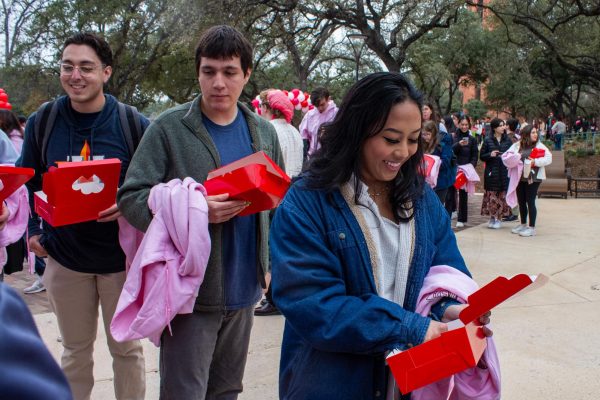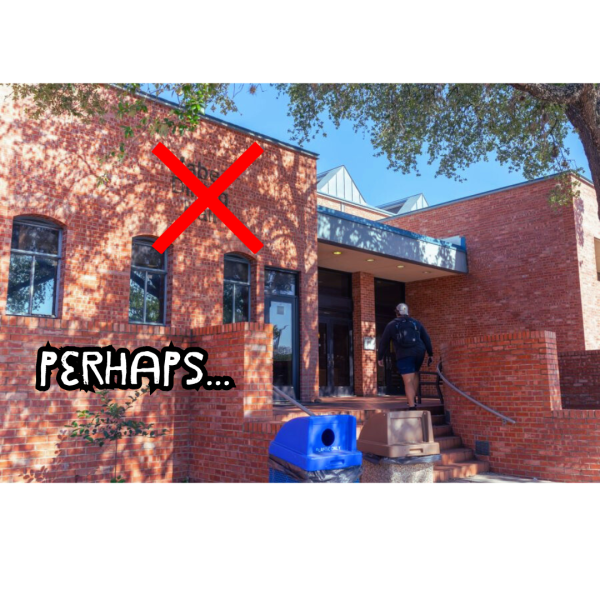Trinity alumni respond to reinstated residency requirement
The alumni express concern over the reinstatement
COVID and housing
“Ghost town” has been a popular description for campus life this year due to the lack of in-person events and significantly fewer people wandering around campus. While it’s been a great perk for shorter lines at Starbucks, it reminds students of their friends and classmates who have chosen to spend the year learning remotely to help family out, save money, avoid traveling or care for their mental health during the pandemic.
Earlier this semester, however, it was announced that the three-year residency requirement will be reinstated beginning in the fall of 2021 with limited exceptions.
For some alumni who lived on campus through their senior years, reinstating the three-year on-campus housing requirement is inequitable and causes more harm than good for both the Trinity and San Antonio communities.
Olivia Roybal, ‘19, expressed doubt over the certainty of positive projections expressed in Vice President for Student Life Sheryl Tynes’ February 10 email.
“We know that COVID projections in the past have been wrong and tend to be kind of optimistic,” Roybal said. Roybal, who lives in San Antonio and spent half of last year working at the food bank, explains that the impacts of COVID-19 have only gotten worse beyond the Trinity community.
“Not necessarily in terms of mortality and all these cases, but in terms of broad public safety and access to resources and unemployment, I only see things getting worse. I haven’t seen in my own experience or my friends’ any relaxation or certainty, so I’m wary of any optimistic projections,“ Roybal said.
Samsara Davalos-Reyes, ‘19, expressed concerns regarding how the university will safely return most students to campus considering the close proximity under which students would be asked to live. Will students be required to be vaccinated against COVID if they live on campus? Will there be enough cleaning facilities available with the increase of students living on campus?
Another concern shared by students and alumni alike is the limited exception policies available for students who do not wish to risk their health and would still like to fulfill graduation requirements.
“For current sophomores only, who are not currently living on campus or with family, and who are currently renting off campus property in San Antonio, there will be a limited exception process for those who do not prefer to return to the residence halls,” wrote Tynes in the email. “The process is in addition to that for students seeking exceptions to the residency requirement based on health or disability-related reasons.”
A follow-up email, sent on March 4 by Tynes on behalf of Student Accessibility Services, states that “Documentation from a medical professional must be included and will be crucial to our evaluation process.”
To Davalos-Reyes, the exception is too vague to account for mental health concerns. According to her, mental health is often not seen as a legitimate health concern, making it difficult for students to provide the “crucial” documentation required to receive an exception.
“Generally with applying for housing exceptions, it tends to put the burden on people who really need the exception instead of actually helping,” Roybal said in agreement with Davalos-Reyes. “The email did mention the financial hardship aspect in that everyone and their families are in so many different difficult situations, so more flexibility is always helpful.”
Roybal, who lived on campus and City Vista until her last semester, believes that a number of students would probably opt-in to staying on campus regardless of the reinstatement of the three-year residency requirement because of the community students can build. She believes that reinstating the requirement during a pandemic highlights issues with having such a lengthy requirement in the first place.
Davalos-Reyes, who also lived on campus until graduation, agrees. Though she personally enjoyed and chose to stay past her required time, she has seen enough classmates struggle with it to know that her experience is not universal.
While some students’ financial aid packages include housing in their award, others don’t and have to end up taking loans. Others who are from San Antonio have had to spend money on housing when they could have stayed home or found cheaper off-campus alternatives. These inequities have only been highlighted in the duration and aftermath of the COVID-19 pandemic.
“This is especially coming out of a moment where it’s taken a toll, financially, on so many families, so how are you ensuring that this is an equitable practice now considering the fact that this wasn’t an equitable practice from the beginning,” Davalos-Reyes said.
During a moment where the Trinity community COVID-19 cases experienced a surge and Texas has lifted mask and social distancing mandates, the implications of inviting the Trinity community back to San Antonio poses a threat to people who live and work in the city year-round.
“Right now, I don’t know that Trinity students need to live at Trinity for three years. I think that people’s priorities might be in different, more pandemic-related priorities,” Roybal said.
Both alumni stress the importance of choice, autonomy and equitable access to a safe learning environment. They believe Trinity should consider giving students the choice to learn from the place they feel safest.












Maria Carrasco • Mar 18, 2021 at 3:25 pm
I agree that the students, during this pandemic, have the option to choose where they want to live. I say this because my daughter is very lonely with the limited socializing in place. Thank God we live close to Trinity and she is able to drive home on the weekends to visit us and not be alone. The only good thing about her dorm is better internet but if her professors are willing to work with her and our internet service she would rather stay at home. Financially that would help us out.